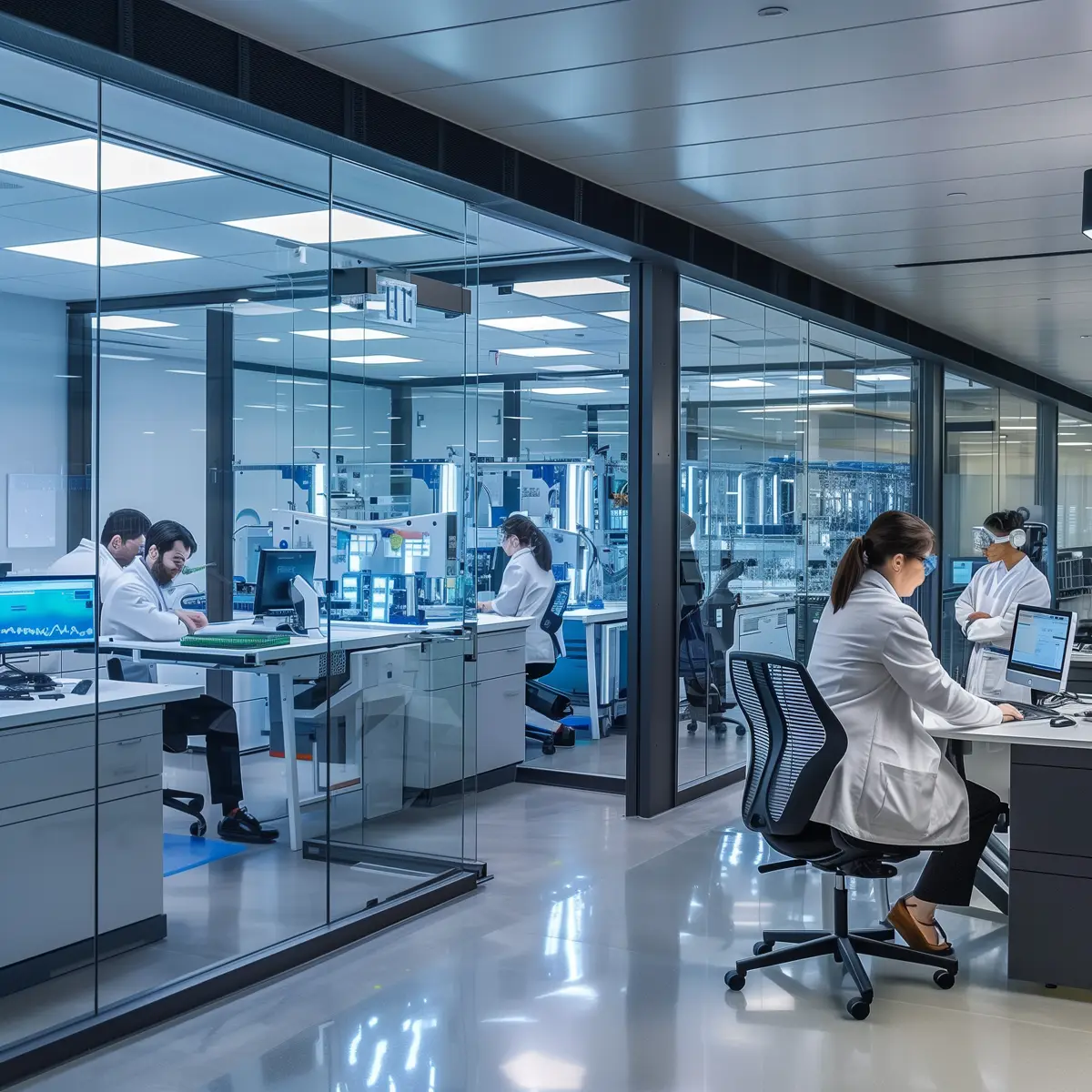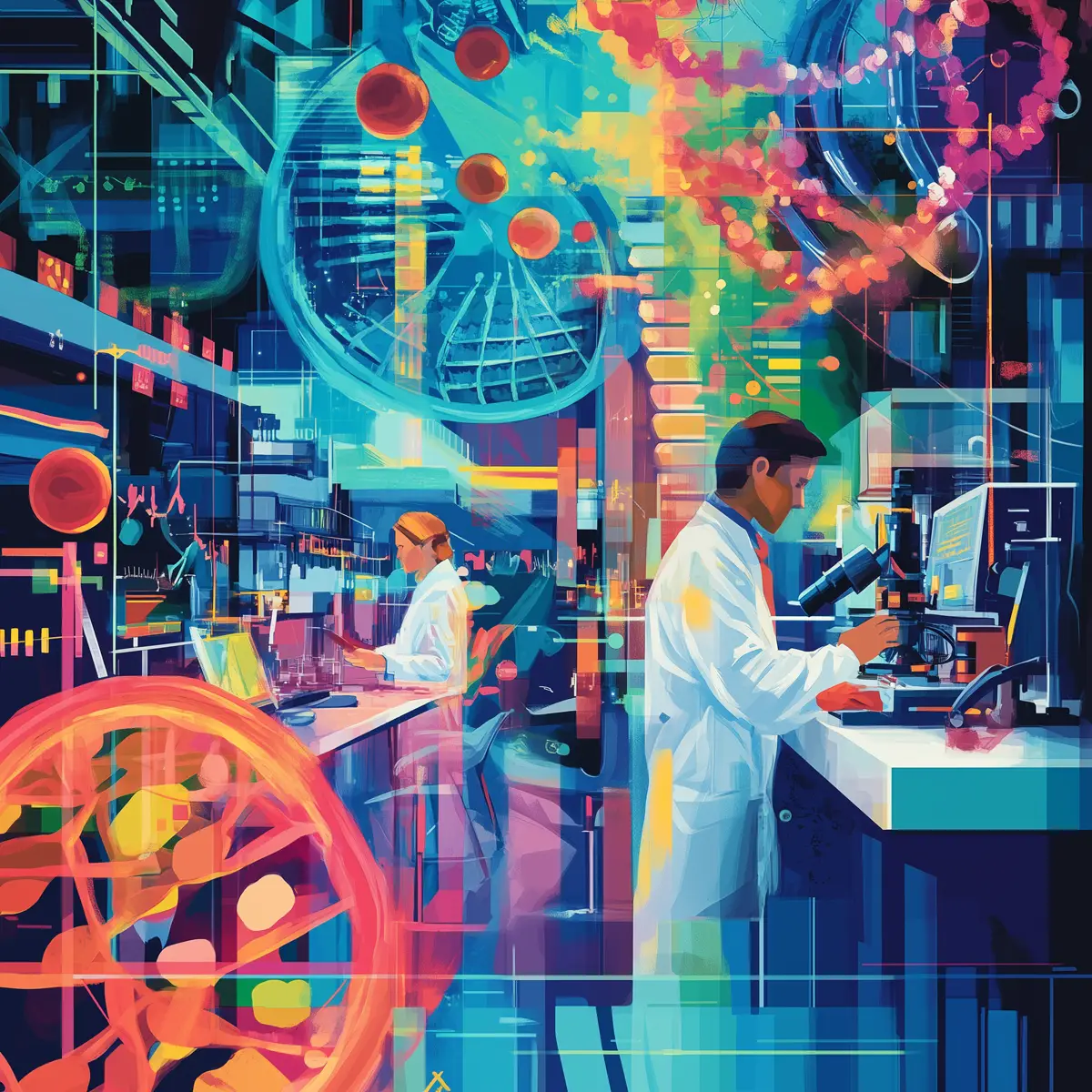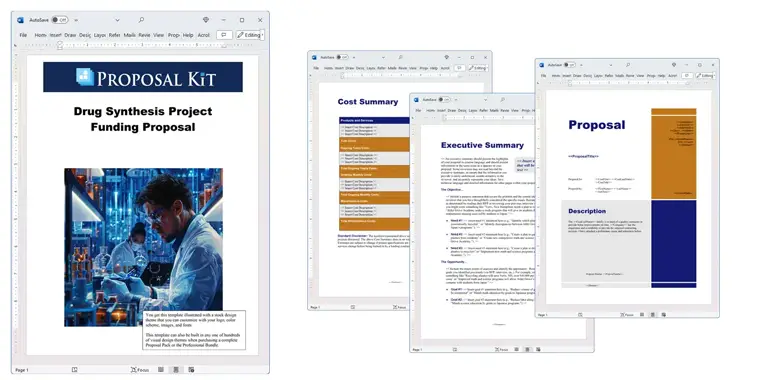How to write your Drug Synthesis Project Funding Proposal
We include this 28 page layout with every Proposal Pack. If you want this template to have a different visual design theme than the one illustrated here, purchase any Proposal Pack design and create this template using the purchased design theme. This template is included in every Proposal Pack. If you get a Proposal Pack or the Professional, you can also make any variation of this template with different chapters to suit your needs.
We typically include more chapters in the templates than most people will need to give everyone more variety in the chapters they may need. You can trim down a long template by removing pages you do not need or combining multiple chapter topics into one page.
 DOWNLOADABLE, ONE-TIME COST, NO SUBSCRIPTION FEES
DOWNLOADABLE, ONE-TIME COST, NO SUBSCRIPTION FEESYou can also create countless variations of this document to suit your needs using the included library of 2200+ chapters if ordering a Proposal Pack or Professional.
 What Our Clients Say
What Our Clients SayWe just landed redesigning one of the largest real estate company’s entire multistate intranet using nothing but Proposal Pack wizard and awesomeness."
Florentine Design Group
Related Article
Related Video
Related Templates
- In-House Lab to Save Costs and Protect Trade Secrets Proposal
- Research Assistant Proposal
- Medical Research Project Funding Proposal
- Research Funding Request Proposal
- Pharmaceutical Product Sales Proposal
- Research Proposal (Long)
- Healthcare Case Study
- Research Proposal (Short)
- Pharmacy Startup Business Plan Funding Proposal
- Covid 19 Therapeutic Treatment Product Proposal
- PhD Thesis Proposal
- Medical Support Project RFP Response Proposal
What's the Best Way to Write Your Drug Synthesis Project Funding Proposal?
A proven approach for creating a drug synthesis project funding proposal is to use the Proposal Kit. This software and template library simplifies the proposal writing process by providing a structured, easy-to-navigate system, including a line item quoting database for detailed financial discussions. This comprehensive tool aids users in developing professional, persuasive proposals efficiently.
Are you currently in the position of needing to write a proposal for any of these types of drug synthesis projects?
What Types of Projects Are Drug Synthesis Project Funding Proposals Written For?
Drug synthesis project funding proposals are for securing the necessary financial backing for research in pharmaceutical development. These proposals detail the objectives, methodologies, expected outcomes, and comprehensive budgeting for drug discovery and development aspects. Here's a look at the types of projects that typically require such detailed proposals, which are usually funded by foundations, universities, and government agencies:
- Development of a new synthetic pathway for an existing drug to increase yield
- Research on novel drug delivery systems using nanotechnology
- Investigation of alternative synthetic methods for greener chemistry
- Scaling up synthesis for clinical trial batches
- Exploration of new medicinal compounds derived from natural sources
- Synthesis and testing of new pharmaceuticals for rare diseases
- Advanced research on biodegradable polymers for drug encapsulation
- Study of catalysts in the synthesis of complex molecules
- Research on automation in drug synthesis processes
- Funding for collaborative research between academia and industry
Chapters this template is built with
These templates are just a sample from the thousands available in the Proposal Kit's library, allowing you to customize your proposal to cover all necessary topics. Drafting the proposal is just one task in the broader project setup.
Cover Letter
The cover letter serves as the introduction to your proposal, written to engage the reviewers immediately. It should be personalized, addressing the funding agency or stakeholders directly. Highlight the urgency of your drug synthesis research and its potential impact on public health or scientific advancement. The tone should be professional yet compelling, setting the stage for the following detailed content.
Executive Summary
The executive summary is an essential part of your proposal, designed to grab decision-makers attention from the very first line. It should briefly summarize the project, including the purpose, expected outcomes, total cost, and the importance of the work. Decision-makers often read this section first and refer back to it, making it essential to effectively capture the essence and value of your project.
Goals and Objectives
This section should clearly articulate your research project's specific goals and objectives. Each goal should be measurable and achievable, linked directly to the methodologies you intend to use. Objectives should detail the intended milestones and the steps you will take to achieve them, providing a clear roadmap for the project's execution.
Expected Results
In the expected results section, outline the anticipated outcomes of your research. Discuss how these results will contribute to the field of drug synthesis, such as innovations in drug design or improved synthesis methodologies. Highlight the potential impact on industry standards and how it could influence future research directions.
Procedures
Detail the specific methods and protocols that will be used throughout your research. This should include experimental designs, the types of analysis to be conducted, and the procedural steps to ensure thorough and replicable results. Clarity in this section reassures reviewers of your project's feasibility and scientific rigor.
Staffing
Describe the composition of your project team, including each member's expertise and roles. Highlight team members' qualifications and past experiences that make them suitable for their roles, emphasizing how their contributions will be crucial to the project's success.
Therapies
Discuss the potential therapeutic applications of your research. Explain how the project could lead to new treatments or improvements in existing therapies. Consider the broader impact on healthcare, including how these therapies could meet unaddressed needs within current treatment paradigms.
Methodology
Provide a detailed explanation of the scientific techniques and analytical methods employed in the research. This should include established methods and any novel approaches you plan to implement. Detail how these methods will contribute to the accuracy and reliability of your research outcomes.
Biotechnology
Explore the biotechnological tools and processes integral to your drug synthesis project. This might include genetic engineering, enzyme technology, or cell culture systems. Explain how these technologies will enhance the research process or lead to innovative outcomes.
Equipment
List all technical equipment required for the project, providing justifications for each piece. Detail the role of each piece of equipment in the research process, ensuring that reviewers understand why each item is important for the project's success.
Controls
Outline the control mechanisms you will implement to ensure the validity and reliability of your research findings. This may include control experiments, calibration standards, or quality assurance procedures. This section is crucial for establishing the scientific rigor of your study.
Nanotechnology
Discuss how nanotechnology will be used in your drug synthesis processes. Focus on the potential to enhance drug efficacy, target delivery, or reduce side effects. This can highlight the cutting-edge nature of your research and its potential to push boundaries in drug development.
Healthcare
Link your research directly to its implications for healthcare. Discuss how the project will address current challenges in the medical field or improve upon existing treatment options. This connection can help underscore the real-world impact of your work.
Evaluation
Describe the methods you will use to evaluate your project's progress and success. This should include performance indicators, interim reviews, and end-point assessments. Clear evaluation strategies are crucial to demonstrating the project's viability and success.
Projected Expenses
Provide a detailed breakdown of all expected expenses associated with your project. This should include direct costs like materials and equipment and indirect costs such as personnel salaries and facility fees. Justifications for each expense category should be transparent and data-driven.
Budget
Present a comprehensive budget that aligns your project goals with the expected expenses. Use clear formatting and categorize expenses so that reviewers can easily understand how funds will be allocated throughout the project.
Return on Investment
Analyze the expected scientific and financial benefits relative to the costs. Discuss the potential for market applications, patent opportunities, or cost savings in production methods. This analysis will help justify the investment in your project from a financial perspective.
Recommendations
Based on the expected outcomes of your research, offer recommendations for future research directions or applications of the findings. This shows forward-thinking and positions your project as a stepping stone for further innovation.
Credentials
Showcase your team's qualifications and past successes to establish credibility. Include any relevant publications, prior funded projects, or industry collaborations that
can attest to your team's ability to deliver high-quality research.
Breakthroughs
Discuss potential scientific breakthroughs that could arise from your project. Consider how these breakthroughs could revolutionize drug synthesis or introduce new paradigms within the field.
About Us
Provide a detailed background of your organization or research team. Include information on past achievements, research focus, and any unique capabilities that position you as a leader in the field.
Future Potential
Explore the long-term opportunities your research could unlock. Discuss potential applications in commercial products, therapeutic interventions, or as a foundation for future scientific exploration.
Research and Development
Detail the innovative aspects of your research and development processes. Highlight any unique methodologies or technologies you will employ, emphasizing their relevance and potential to contribute to the field.
Facilities
Give an overview of the facilities and resources available for your project. Ensure the facilities meet sophisticated drug synthesis research requirements and describe any specialized equipment or capabilities.
Team Members
Provide biographies of key team members, highlighting their expertise and significant roles within the project. This helps to personalize the proposal and connect the project goals with the people who will drive them to fruition.
Use cases for this template
Journey to Funding
John, the owner of the biotech startup PharmSynth Solutions, faced the challenge of attracting funding to bring his innovative drug synthesis concept to life. He understood that to secure the necessary investment, his proposal needed to explain the scientific intricacies and highlight the potential for substantial market returns.
Leveraging the Proposal Kit, John outlined each stage of the synthesis process, emphasizing how it could streamline production and reduce costs. His proposal included detailed market analysis and growth forecasts that demonstrated his project's lucrative future.
Investors were particularly impressed with the clear, logical presentation of complex data, which was made possible by the Proposal Kit templates. This clarity and depth turned a challenging funding pitch into a successful investment opportunity, catapulting PharmSynth Solutions into a leading position in its market niche.
Beating the Clock
At Genetech Innovations, Lisa was tasked with developing a funding proposal that could make or break the company's next development phase. With only two weeks to deliver, Lisa turned to Proposal Kit, a tool she paired with an AI writing assistant for maximum efficiency.
The AI assistant analyzed Genetech's extensive online content, extracting critical information that Lisa used to enrich the proposal, ensuring every section was tailored to showcase the company's strengths and the project's innovation.
The Proposal Kit templates provided a professional framework, ensuring that each part of the proposal, from the executive summary to the detailed budget, adhere to industry standards and expectations. Her approach met the tight deadline and produced a polished, persuasive proposal that successfully secured the needed funding.
Navigating Non-Profit Funding
Tom, the director at BioHealth Partners, was tasked with drafting an RFP (Request for Proposal) for a large-scale drug synthesis project to tackle global health issues. Understanding the importance of clarity and detail in attracting the right partners, Tom used the Proposal Kit to structure a comprehensive and precise RFP.
The templates allowed him to clearly define the project scope, objectives, and criteria for selection, making it easy for potential research partners to understand the nonprofit's needs and how they could contribute. The well-organized RFP facilitated the receipt of bids closely aligned with the project's goals, enabling BioHealth Partners to select partners who offered the most innovative approaches and best value propositions.
This use of the Proposal Kit not only streamlined the RFP process but also ensured that the project would be carried out with the most qualified collaborators, significantly impacting the success of their research endeavors.
Conclusions and Recommendations
Proposal Kit not only provides you with expertly designed templates and financial planning tools but also enhances your ability to communicate your vision effectively. By incorporating Proposal Kit into your proposal development process, you can focus more on your research and less on administrative challenges.
With Proposal Kit, you're well-equipped to create a document that wins over reviewers and stakeholders, increasing your chances for funding and advancing scientific breakthroughs in drug synthesis.
Also Known As
This template may also be referred to in different ways or be used in more specialized situations, such as:
- Drug Development Funding Proposal
- Pharmaceutical Synthesis Project Grant Application
- Medicinal Chemistry Research Funding Request
- Drug Discovery Funding Proposal
- Pharmaceutical Development Grant Proposal
- Drug Synthesis Research Proposal
- Drug Formulation Funding Request
- Drug Development Project Grant Submission
- Pharmacological Research Funding Application
- Drug Synthesis Financial Support Proposal
Abstract
 In the competitive field of pharmaceutical development, creating a funding proposal for a drug synthesis project is crucial. Researchers and investigators leverage sophisticated tools like the Proposal Kit to streamline the application process, ensuring all project outcomes and methodologies are clearly articulated. By focusing on innovations in chemical synthesis and disease diagnosis, particularly in areas such as cancer, proposals can communicate their potential impact. Key dates and milestones are outlined, reflecting the project's feasibility and driving innovations in pharmaceutical sciences. The principal investigator plays a role in ensuring the proposal aligns with the recommendations expressed by funding bodies and that the scientific rigor is displayed verbatim.
In the competitive field of pharmaceutical development, creating a funding proposal for a drug synthesis project is crucial. Researchers and investigators leverage sophisticated tools like the Proposal Kit to streamline the application process, ensuring all project outcomes and methodologies are clearly articulated. By focusing on innovations in chemical synthesis and disease diagnosis, particularly in areas such as cancer, proposals can communicate their potential impact. Key dates and milestones are outlined, reflecting the project's feasibility and driving innovations in pharmaceutical sciences. The principal investigator plays a role in ensuring the proposal aligns with the recommendations expressed by funding bodies and that the scientific rigor is displayed verbatim.
The proposal should reflect the research's aim to transform drug development processes. By exploring novel synthetic pathways, researchers can enhance the stability and efficacy of synthesized compounds, thereby reducing waste and improving commercial viability. Additionally, partnerships with institutions can facilitate access to advanced resources and isolation techniques. This interdisciplinary network of scientists and students fosters a collaborative environment where ideas are synthesized and characterized for future application.
To increase the probability of securing an award, the proposal should detail the team's credentials, highlighting past successes in peptide synthesis and biodegradable polymer research. The potential for commercialization and the introduction of new therapies is underscored, emphasizing the project's relevance to current healthcare challenges. By integrating biotechnology and nanotechnology, the proposal showcases how cutting-edge tools can advance research outcomes and impact industry standards. In conclusion, a well-written funding proposal not only aims to secure financial backing but also positions the research as a cornerstone for future scientific exploration and development.
 A drug synthesis project funding proposal serves as a foundational document that outlines the intended research's objectives, methodologies, and anticipated outcomes. By employing the Proposal Kit, researchers ensure a structured and coherent presentation of their project, which is crucial for capturing the interest of potential funding bodies. The application process delineates key dates and milestones while emphasizing the research's alignment with contemporary scientific needs, such as advancements in chemical synthesis for disease diagnosis. The principal investigator curates a narrative that necessarily reflects the project's innovative aspirations, ensuring that recommendations expressed by reviewers are addressed with precision and clarity.
A drug synthesis project funding proposal serves as a foundational document that outlines the intended research's objectives, methodologies, and anticipated outcomes. By employing the Proposal Kit, researchers ensure a structured and coherent presentation of their project, which is crucial for capturing the interest of potential funding bodies. The application process delineates key dates and milestones while emphasizing the research's alignment with contemporary scientific needs, such as advancements in chemical synthesis for disease diagnosis. The principal investigator curates a narrative that necessarily reflects the project's innovative aspirations, ensuring that recommendations expressed by reviewers are addressed with precision and clarity.
These proposals often explore the development of novel synthetic pathways that enhance the stability and yield of synthesized drugs, particularly in cancer research. By identifying alternative methods for greener chemistry, the research not only advances scientific knowledge but also demonstrates a commitment to environmental sustainability. The presence of a robust academic and industrial network, including collaborations with prestigious institutes of technology and universities, grants researchers access to cutting-edge facilities and expertise.
In detailing the project's framework, the proposal characterizes the role of automation in drug synthesis, which can streamline processes and reduce costs. The use of advanced biotechnology and nanotechnology further enhances the research's potential, offering solutions that improve targeting and reduce side effects. This integration is vital for the proof of concept phase, where scientists and students work collaboratively to test and refine their hypotheses.
 The proposal also outlines the project's commercialization potential, providing a comprehensive analysis of market applications and the probability of securing patents. By addressing unaddressed therapeutic needs, the project aims to transform existing treatment paradigms and drive innovations within the pharmaceutical industry. Additionally, the proposal articulates the broader impact on healthcare, emphasizing how the research could lead to new therapies that meet current medical challenges.
The proposal also outlines the project's commercialization potential, providing a comprehensive analysis of market applications and the probability of securing patents. By addressing unaddressed therapeutic needs, the project aims to transform existing treatment paradigms and drive innovations within the pharmaceutical industry. Additionally, the proposal articulates the broader impact on healthcare, emphasizing how the research could lead to new therapies that meet current medical challenges.
The proposal elaborates on the need for precise isolation and characterization of compounds, which is crucial for ensuring the quality and efficacy of the final product. The award of funding hinges on the project's ability to display scientific rigor and demonstrate its potential for significant breakthroughs in drug synthesis. By offering clear and clear budgeting and cost estimations, the proposal reassures stakeholders of the project's viability and the judicious use of resources.
In conclusion, a well-written drug synthesis project funding proposal not only seeks financial support but also positions the research as an integral part of the future scientific landscape. By harnessing the collective expertise of investigators and using advanced technologies, the proposal sets the stage for groundbreaking discoveries and innovations in medicinal chemistry.
Frequently Asked Questions
What should I include in a drug synthesis project funding proposal?
Include an introduction, project objectives, background and significance, detailed methodology, expected outcomes, timeline, budget, and a section on potential impact and benefits.
How do I justify the need for funding in my drug synthesis project proposal?
Explain the significance of the research, highlight the gap in current knowledge or treatment, provide data or case studies to support the need, and detail how the funding will be used to achieve the project goals.
What is the best way to present the proposal's scientific methodology and experimental design?
Use clear and precise language, provide detailed experimental protocols, include diagrams and flowcharts to illustrate the synthesis process, and explain how each step contributes to the overall objectives.
How should I approach my drug synthesis project's budgeting and cost estimation?
Provide a detailed and itemized budget, include quotes or estimates for equipment, materials, and personnel costs, and justify each expense by explaining its necessity for the project's success.
How can I demonstrate my drug synthesis project's potential impact and significance?
Highlight the project's potential to advance scientific knowledge, improve drug efficacy or safety, address unmet medical needs, and include data or projections on the anticipated benefits to patients and the healthcare industry.
20% Off Discount
![]() Add To Cart This Word Template
Add To Cart This Word Template
 Add To Cart Proposal Pack for Any Business
Add To Cart Proposal Pack for Any Business
 Add To Cart Proposal Kit Professional
Add To Cart Proposal Kit Professional
 4.7 stars, based on 849 reviews
4.7 stars, based on 849 reviewsProposal Kit chapters used in this template
Cover Letter, Title Page, Table of Contents, Executive Summary, Goals and Objectives, Healthcare, Therapies, Biotechnology, Nanotechnology, Research and Development, Breakthroughs, Future Potential, Staffing, Facilities, Equipment, Methodology, Procedures, Controls, Expected Results, Evaluation, Projected Expenses, Return on Investment, Budget, Recommendations, About Us, Team Members, Credentials, Back Page
Line Item Automated Chapters
If you purchase a Proposal Pack or the Professional Bundle, these proposal pages are generated using an automated line-item database in the included Wizard software.
Budget Three Year, ROI Spreadsheet
You use this proposal for
- General business proposal
- Non-technical proposal
- Project pitch proposal
- Business plan, loan, investor funding proposal
- Medical, healthcare, wellness proposal
- Research, science proposal
How to create this template with Proposal Pack Wizard
You can create this document using any of the logo-designed Proposal Packs. Pick any Proposal Pack with a logo design theme you like best; they will all work equally well. The Proposal Pack for Any Business is the pack with no extra added logos or colors - designed to be used plain or for you to customize with your logos and graphics.
The Proposal Pack design theme you purchase will determine the visual look of this template. The screenshot above only shows the plain generic design theme.
We include a library of chapters to be assembled based on your needs. All proposals are different and have different needs and goals. We designed Proposal Pack so you can customize the documents to suit your needs.
You will best create this document using the Proposal Pack Wizard - Expert Edition software to select this template and build it in the Proposal Pack logo design theme of your choice along with any desired customizations (such as adding additional chapters, removing unneeded chapters, changing the order of chapters, and importing your company logo). This template outlines a proposal for the described situation. Each user is responsible for typing in the actual content of the provided pages with their information to complete the proposal. Suggestions in the abstract may include features in higher-end packages and are facilitated by the selection of chapter templates to support the narrative of each proposal, which help guide the user in filling in the details.
The Wizard software's AI Writer will write the content of the pages of the template based on details provided for your company, client, project, financial details and other writing instructions. This will provide a personalized version of the template completely written and ready to edit.
Once finished, the AI Writer's Word-to-PowerPoint converter can transform your proposal, business plan, or other business documents into a PowerPoint slideshow. Save time and effort by letting the AI analyze every chapter to condense its content into talking points, visually matching the document, and providing a consistent package of presentation material with the click of a button.
You create this template using the Wizard software with an entire Proposal Pack library and software. We include the Expert Edition of the software in the Proposal Kit Professional. Microsoft Word for Windows is required to use the customizing software. You can also edit Word document templates in other office software such as Word for Mac. We will assist Mac users in assembling complex templates for their first project if they do not have the required platform to run the Wizard software.
How to Build Templates Featured on Proposal Kit Website
Many people find the Proposal Kit website after searching for a specific proposal. Once you've purchased and installed the software, how do you build that template you found in the first place? This video shows you how to build any proposal you see on the Proposal Kit website.
 Ian Lauder has been helping businesses write their proposals and contracts for two decades. Ian is the owner and founder of Proposal Kit, one of the original sources of business proposal and contract software products started in 1997.
Ian Lauder has been helping businesses write their proposals and contracts for two decades. Ian is the owner and founder of Proposal Kit, one of the original sources of business proposal and contract software products started in 1997.By Ian Lauder
 Published by Proposal Kit, Inc.
Published by Proposal Kit, Inc.


 Cart
Cart
 Get 20% off ordering today:
Get 20% off ordering today: 


 Facebook
Facebook YouTube
YouTube Bluesky
Bluesky Search Site
Search Site